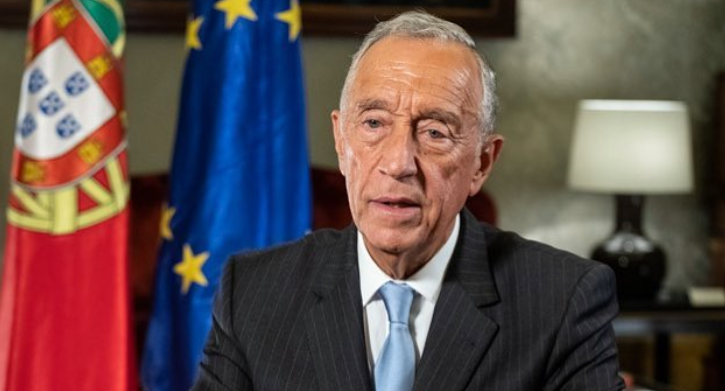Portugal's president suggests debt cancellation to repair colonial, slavery legacy
President Marcelo Rebelo de Sousa said on Saturday Portugal could use several methods to pay reparations for atrocities committed during transatlantic slavery and the colonial era, such as cancelling the debt of former colonies and providing financing. From the 15th to the 19th century, 6 million Africans were kidnapped and forcibly transported across the Atlantic by Portuguese vessels and sold into slavery, primarily to Brazil.

President Marcelo Rebelo de Sousa said on Saturday Portugal could use several methods to pay reparations for atrocities committed during transatlantic slavery and the colonial era, such as cancelling the debt of former colonies and providing financing.
From the 15th to the 19th century, 6 million Africans were kidnapped and forcibly transported across the Atlantic by Portuguese vessels and sold into slavery, primarily to Brazil. The president said on Tuesday that Portugal was responsible for crimes committed during transatlantic slavery and the colonial era, and suggested there was a need for reparations.
His words sparked strong criticism from right-wing parties, including the junior partner of the Democratic Alliance government coalition, CDS-Popular Party, and the far-right Chega. The leader of the parliamentary bench of the CDS-Partido Popular, Paulo Nuncio, said on Thursday that his party "does not need to revisit colonial legacies, reparation duties, which seem imported from outside".
Chega leader Andre Ventura said that the behavior of the president was "a betrayal of the country". "We cannot put this under the carpet or in a drawer. We have an obligation to pilot, to lead this process (of reparations)", the president told reporters on Saturday.
He said the country must take "responsibility for the bad and good of what happened in the empire and draw consequences." The country's colonial era lasted more than five centuries, with Angola, Mozambique, Brazil, Cape Verde, Sao Tome and Principe, East Timor and some territories in Asia subject to Portuguese rule.
The decolonisation of the African countries and the end of the African empire only happened months after the "Carnation Revolution" on April 25, 1974, which toppled the longest fascist dictatorship in Europe and ushered in democracy. Rebelo de Sousa said that reparations can take several types, "such as debt forgiveness" for countries that were colonised, "credit lines, financing or special cooperation programs".
(This story has not been edited by Devdiscourse staff and is auto-generated from a syndicated feed.)
ALSO READ
Malaria's Reach Extends as Climate Change Takes Hold, but Africa Remains Endemic
Gandhisagar Sanctuary to Welcome 5-8 Cheetahs from South Africa
POLL-Inflation in key African economies to slow into next year
RailTel partners with South African companies to advance Indian tech, innovation, and exports
South Africa scrutinises BHP bid for Anglo weeks before election










